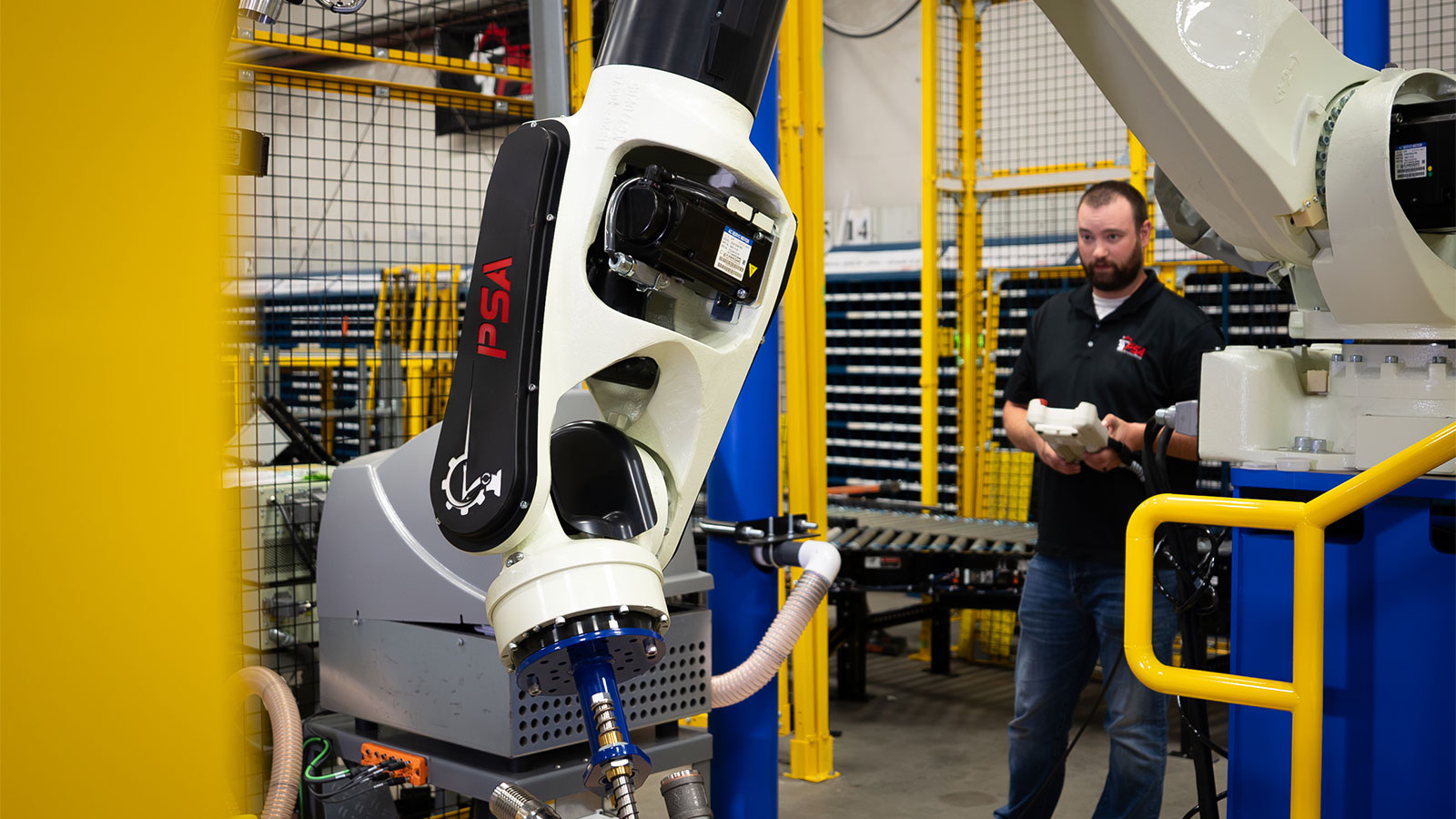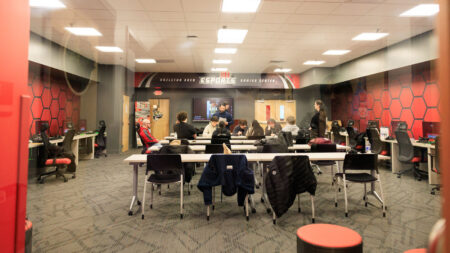In partnership with WVIA, with support from Coterra Energy, we’re bringing you a look behind the scenes at some of Northeastern Pennsylvania’s most successful manufacturing operations. Join us as we get to know the companies, the unique products and the hardworking people leading the way in reestablishing NEPA as a driving force in global manufacturing.
Follow along on this 10-part series that explores NEPA @ Work.
Engineering the Future
Production Systems Automation (PSA), a nationally-recognized engineering and custom manufacturing company was initially founded in 1985 in Aston, PA. Originally, the firm’s focus was on building and installing electronic control panels. Over the ensuing decades, PSA grew along with the pace of technology. For Mike McHale, however, a NEPA native and Philadelphia transplant with decades of experience and ties to the tech/engineering sector, growing alongside technology just means you’re not fast enough.
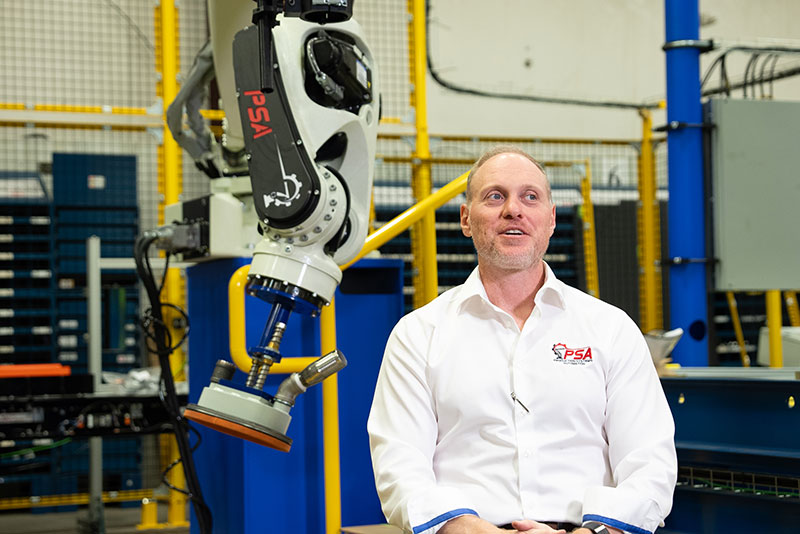
Making the move to NEPA
McHale purchased Production Systems Automation in 2016. And in 2018, though he kept the company’s original location in Aston, he moved the bulk of operations and leadership to PSA’s new headquarters in Duryea. The newly-acquired, 90,000 square-foot space allowed the company to hone in on technology integration systems, robotics and advanced machining and fabrication. At the same time, the larger footprint also allowed for expanding PSA’s pool of talented, local electrical, mechanical and software engineers as well as machinists and fabricators.
The move also brought McHale back home. “I was born and raised here in Northeastern PA and I wanted to stay here,” he adds.
At the time when I purchased PSA, we were calling ourselves a robot automation company, which was probably a bit of a stretch. At that time, PSA had deployed one robot. So, we were calling ourselves a robot company, but only deployed one robot, which doesn’t exactly make you a robot company. So, what we’ve grown the business into was a manufacturing business where we do advanced engineering and advanced manufacturing engineering for our clients and products and for our own use.
Staying Ahead of the Curve
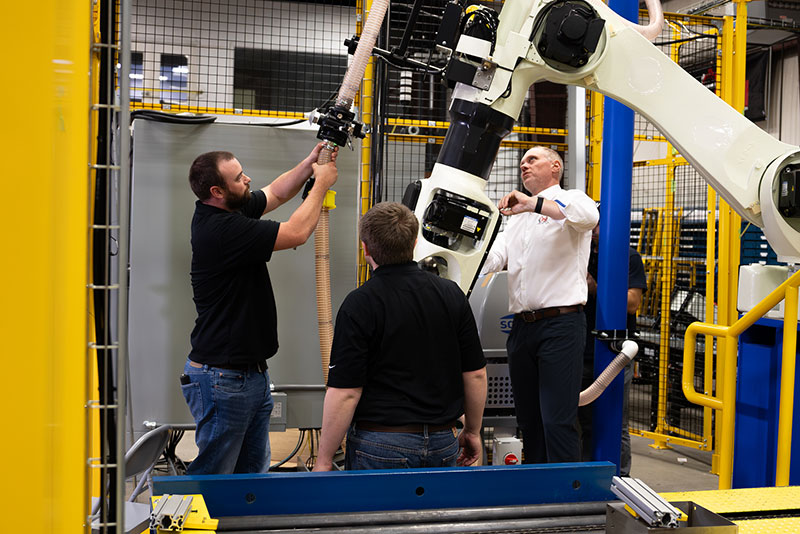
Molding, shaping and manufacturing the future
The 25-acre property also offers plenty of room to grow and build – a prospect that’s forever looming in the CEO’s mind. “We’re always on the cutting edge of technology,” McHale said. And when it comes to integrative applications, there seems to be an endless flow of new enhancements and novel approaches to how we live day to day. According to McHale, “In the next 5-10 years, there will be remarkable changes. There have been remarkable changes in the last 36 months with products that we can now robotically integrate that we probably couldn’t have done five years ago. And that’s going to continue to change.”
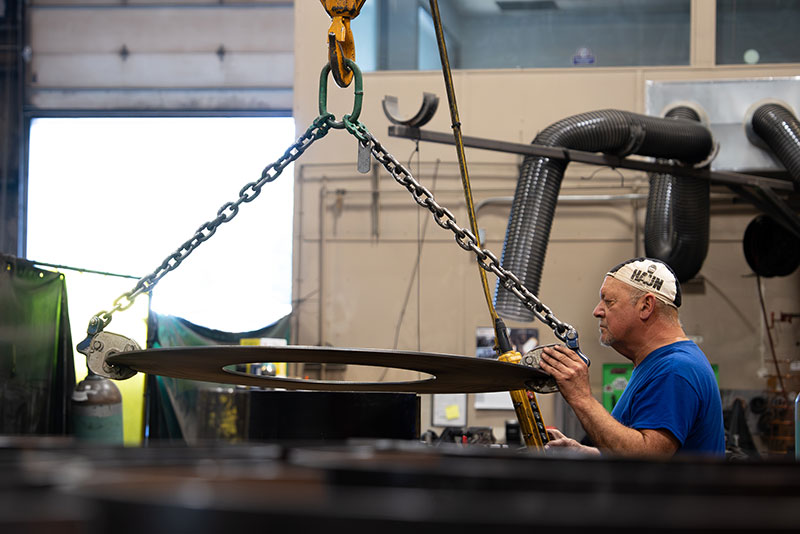
Growing where the roots are strongest
PSA’s move in recent years was also based on a deep understanding and respect for both the available workforce and the built-in NEPA work ethic. “I’m a third generation and most people in my age bracket are third generation. We all know how to work,” he said. And for McHale, that’s something you don’t find in many places outside of Northeastern Pennsylvania. “Our grandparents were all hard working — most were immigrants. And that work ethic and drive to do better has always been here and has never changed.”
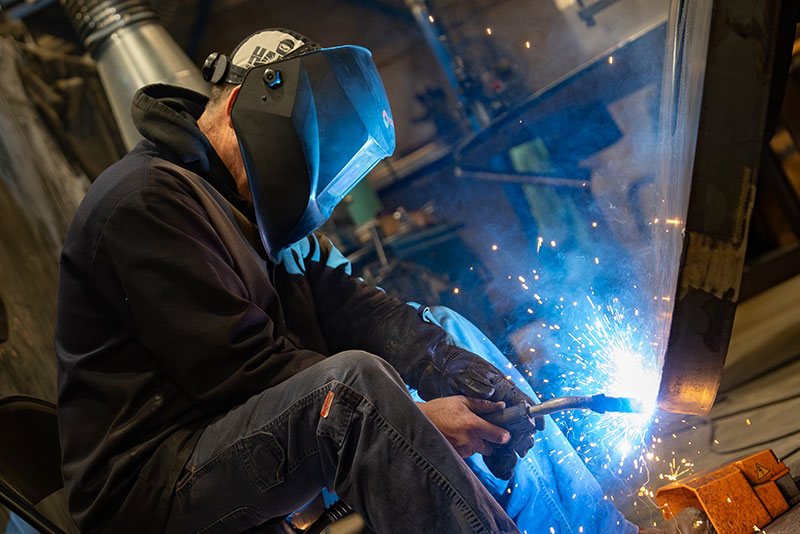
Over two centuries of combined experience in engineering and automation
“We have five father and son duos working here,” McHale boasts. Many of those fathers, McHale’s included, got their starts in earlier iterations of the company. And now, as PSA has evolved into a “turnkey systems integrator,” it has attracted a whole new generation of engineers. “So, it’s a wide breadth”, McHale states. “When an engineer comes here, they have an opportunity to find their path.” He continues, “Maybe you want to be in the electronics business. Maybe you want to be in programming or mechanical design, you can kind of find where you want to be.” And for young and old engineers alike, where they truly want to be is on the forefront of technological advancements.
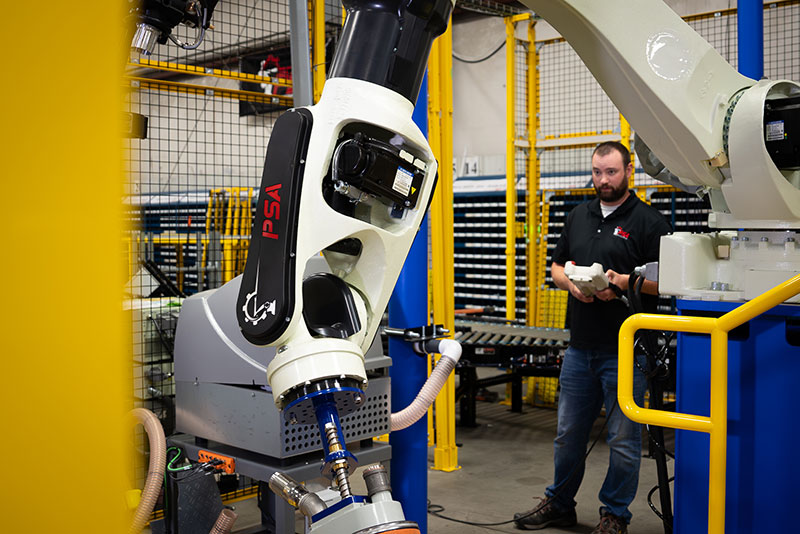
PSA employs nearly 100 engineers, machinists, welders and fabricators
Currently, PSA’s teams are working on robotic “ghost” kitchens, picking and packing robotics for warehousing and distribution applications and swarming drone technology for the Department of Defense to name a few. Every building on the campus features different, uniquely-skilled employees at work on completely different machinery and projects. Some of it requires computer programs, pencils, draft boards and complex mathematics, while some of it is more suited to precision welds, heavy equipment and decades of experience developing the perfect touch.
“Our automation business is heavy mechanical, heavy electrical engineering,” says McHale. “This (robot arm) is PLC Programming, machine design. This is robot programming. This is tool design, conveyor product handling – very heavy mechanical and electrical.” PSA’s drone program for the Dept. of Defense focuses more on software and electronics engineers to design circuit boards. “We have a wide range of engineering talent here at PSA,” McHale states proudly. Many of those engineers, according to McHale, also came directly out of local colleges and universities.
Creating, Improving and Moving the industry Forward
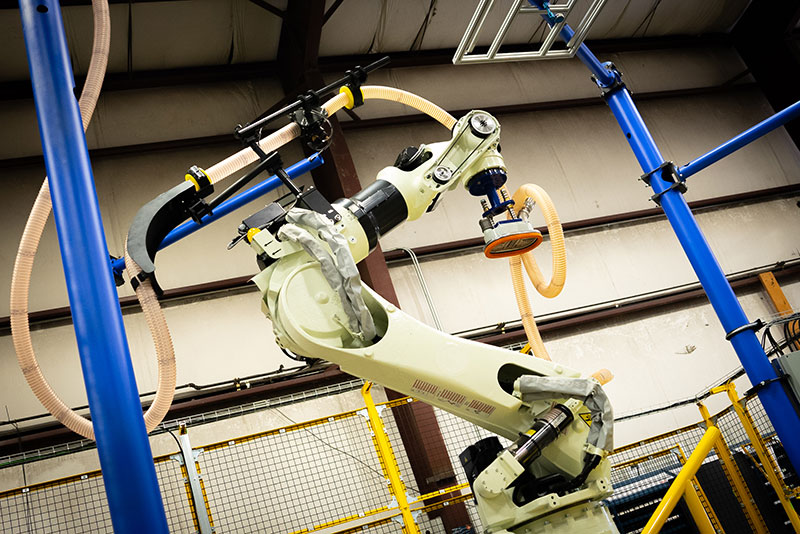
Solving simple problems with big ideas
PSA is made up of three distinct divisions – Robotics & Automation, Department of Defense and Surface Mount Technology (SMT). Primarily, the company serves the following market segments: consumer packaged goods, healthcare and medical devices, warehousing and logistics and light industrial fabrication. “Everything we do here is based off engineering,” McHale adds. “We do contract manufacturing and we do manufacturing and fabrication and welding, but when you really think through how we got to that business, it’s that our fabrication and manufacturing supports all our engineered products.” PSA works directly with customers to offer flexible robotic solutions, custom automated machinery, Programmable Logic Controller (PLC) projects and custom drives and controls. They also employ field and service technicians for repairs, programming and troubleshooting.
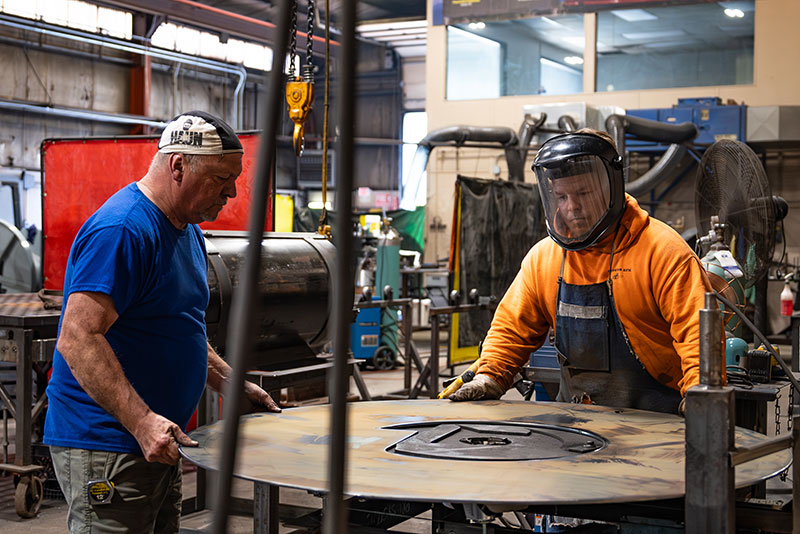
Reaching new heights (literally)
Within its varied portfolio and product lines, PSA claims a substantial client list of national brands including: Kawasaki, Applied Controls, Rockwell Automation, Fanuc, ABB and Yaksawa among many others. “We’re delivering technology to national brands all over the U.S., which is powerful,” McHale beams. A testament, he proudly notes, that rings back to the work ethic and the workforce of NEPA.
And with eyes always trained on the future, McHale offers a glimpse of PSA’s next big project. “Hopefully in the next 12 months we’ll be bringing in satellite manufacturing.” He continues, “Right now, in our machine shop, we’re working on a payload to go to the ISS. And that’s right here in Duryea.”
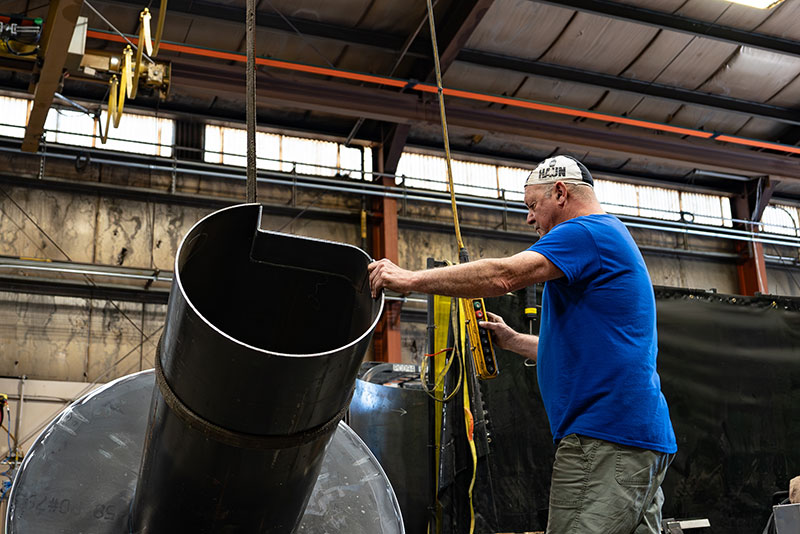
Unstoppable growth
In 2021, PSA continued its impressive growth when it acquired Kaier Engineering and cut the ribbon on its third and newest operation in Lawrence, PA. And just this past year, in July, Pennsylvania Governor, Josh Shapiro visited PSA’s Duryea headquarters to announce the Commonwealth’s new $400 million PA SITES program, which encourages the redevelopment of abandoned industrial sites. McHale has stated that PSA plans to utilize the program and aims to add 100 new jobs and 2 new buildings to its NEPA operation.
Focused on the Future
Alongside high-profile projects under contract with the Department of Defense and a steady line of standard industry products, PSA’s team of engineers also devotes plenty of time to creating solutions to common manufacturing problems in various industries and the future of education in robotics and engineering.
Agriculture – PSA has developed robots and special arm tools designed for packaging delicate products like eggs.
Automotive/Transportation – PSA played a role in creating technology to assist in re-manufacturing of heavy electric vehicle battery packs.
Hospitality/Healthcare – PSA manufactures an industrial Bed Bug Oven for use in hotels, hospitals and schools.
Education – PSA has contributed custom robot stands and safety integration for the University of Pennsylvania’s PennDesign Robotics Laboratory.

DiscoverNEPA and WVIA are proud to highlight the tremendous manufacturing organizations and opportunities within our region. We offer a special thank you to Coterra Energy for generously supporting this project.




















